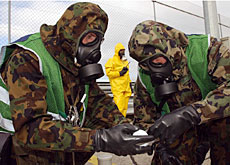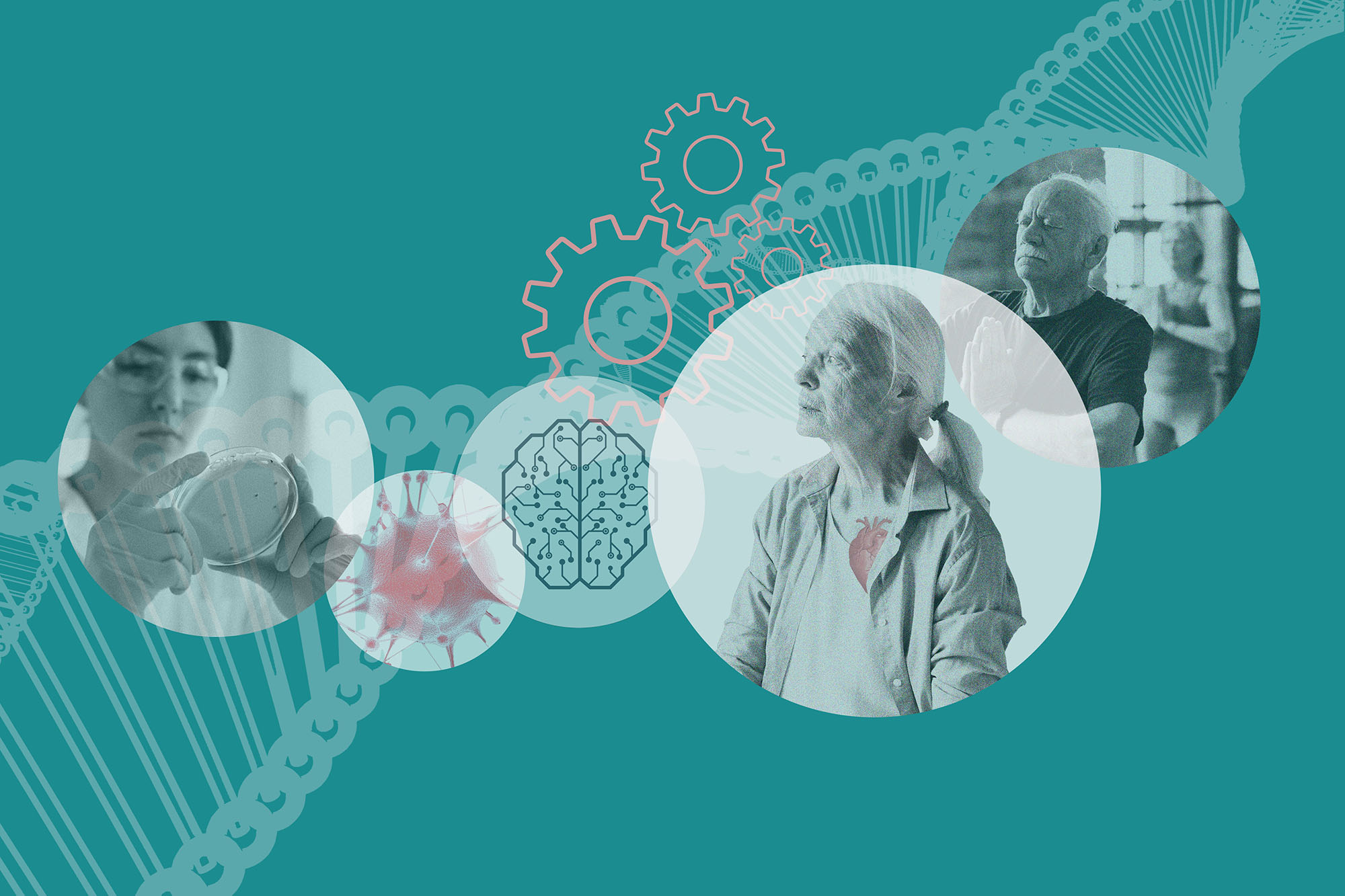Swiss take centre stage at chemical conference

Switzerland has a valuable trump card in the fight against chemical weapons, Ambassador Wilhelm Schmid tells swissinfo, ahead of a major conference.
It possesses a highly respected laboratory in Spiez, canton Bern, which contributes to the reduction of the threat of nuclear, biological, and chemical weapons.
Switzerland aims to play a leading role in negotiations at the tenth conference of the Organisation for the Prohibition of Chemical Weapons (OPCW), which opens on Monday in The Hague.
The week-long meeting is a major forum for discussing and deciding on the Chemical Weapons Convention, an international treaty that bans the use of chemical weapons.
swissinfo: What will be the main topics for discussion at the conference?
Wilhelm Schmid: The main purpose of the organisation and the convention is to destroy existing stocks of chemical weapons and ensure there will never be chemical weapons again.
At the conference we will learn how far we are in this [process of] destruction by the states that possess chemical weapons. We will of course encourage them to do more and we will congratulate them if they have done well.
An important secondary aim – which is also a Swiss interest – is to get all states into this convention. Currently 175 states are members.
We would also encourage and help where possible all members to implement the convention at a national level – and that needs a lot of work.
swissinfo: This is the tenth conference – are you going in the right direction?
W.S.: Enormous progress is being made. The Americans are destroying weapons, the Russians are destroying weapons, the Albanians are preparing to destroy their little stock, Libya has recently joined…
Non-proliferation – trying to prevent new chemical weapons – on the other hand is something that will move to the forefront of our efforts once the existing stocks are destroyed.
At the moment there is a system of inspections carried out in industries and that is an obligation you accept when you join the convention.
swissinfo: What does Switzerland contribute to the conference?
W.S.: We contribute to the budget and we take an active role in various negotiations, but we have an additional trump which we use extremely well and that is our Spiez laboratory. It is world-class and has an important role in contributing to the analysis of potentially dangerous chemical products.
The laboratory is also designing ways to transmit, receive and evaluate electronically the piles of documents that keep us all informed. This is an enormously useful – and greatly appreciated – contribution.
swissinfo: A nuclear non-proliferation treaty collapsed in May without a deal. The head of the Swiss delegation blamed an “unholy alliance” between nuclear powers and developing countries. What are the main hurdles you face?
W.S.: One of the main challenges is that important states in this field are not yet members – Israel, Egypt, Syria, North Korea and so on.
This is not something that prevents us from working efficiently but it would be politically very important if we could get them on board as well.
The other challenge for countries like Switzerland is to see to it that the stocks are destroyed in the planned deadlines. That should happen by 2012 and the way things are going at the moment that might just be possible.
swissinfo: What will satisfy you on Friday?
W.S.: This is an ongoing process. This is number ten – we have number 11 next year. We need to decide a budget and we have an action plan to achieve national implementation – and if that goes without a hitch we will be quite happy.
swissinfo-interview: Thomas Stephens
The Organisation for the Prohibition of Chemical Weapons (OPCW) was established in 1997 by the countries that have joined the Chemical Weapons Convention (CWC) to make sure that the convention works effectively and achieves its purpose.
Currently 175 states have signed the CWC.
The OPCW is an independent international organisation, working in the interests of its member states.
The director-general of the OPCW is Ambassador Rogelio Pfirter, an Argentine of Swiss ancestry.

In compliance with the JTI standards
More: SWI swissinfo.ch certified by the Journalism Trust Initiative












You can find an overview of ongoing debates with our journalists here . Please join us!
If you want to start a conversation about a topic raised in this article or want to report factual errors, email us at english@swissinfo.ch.